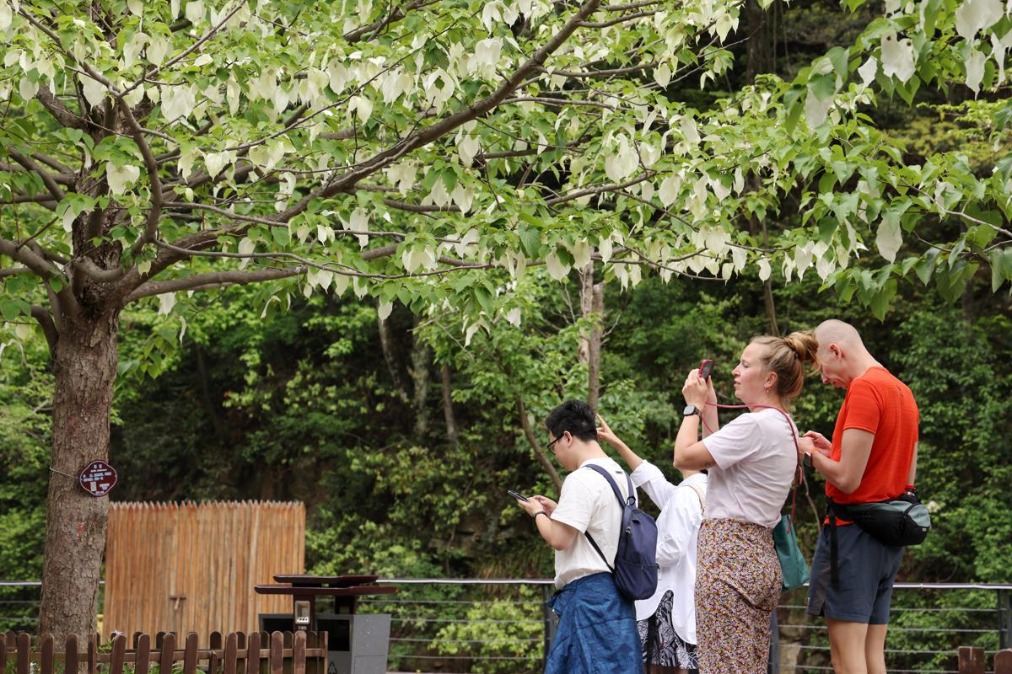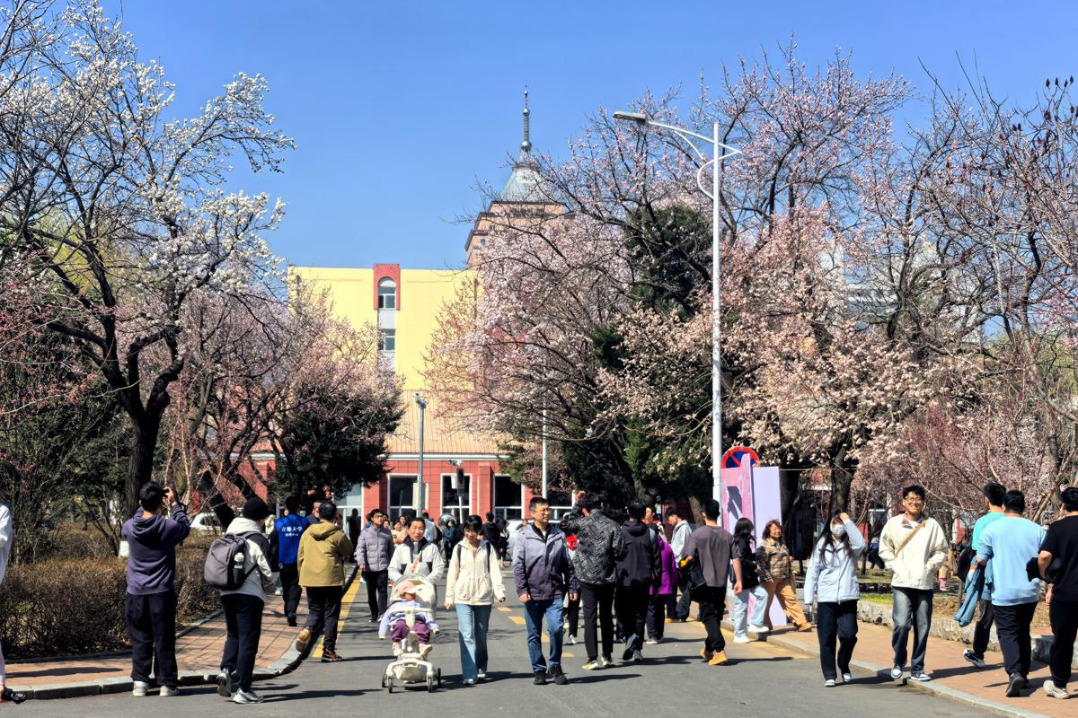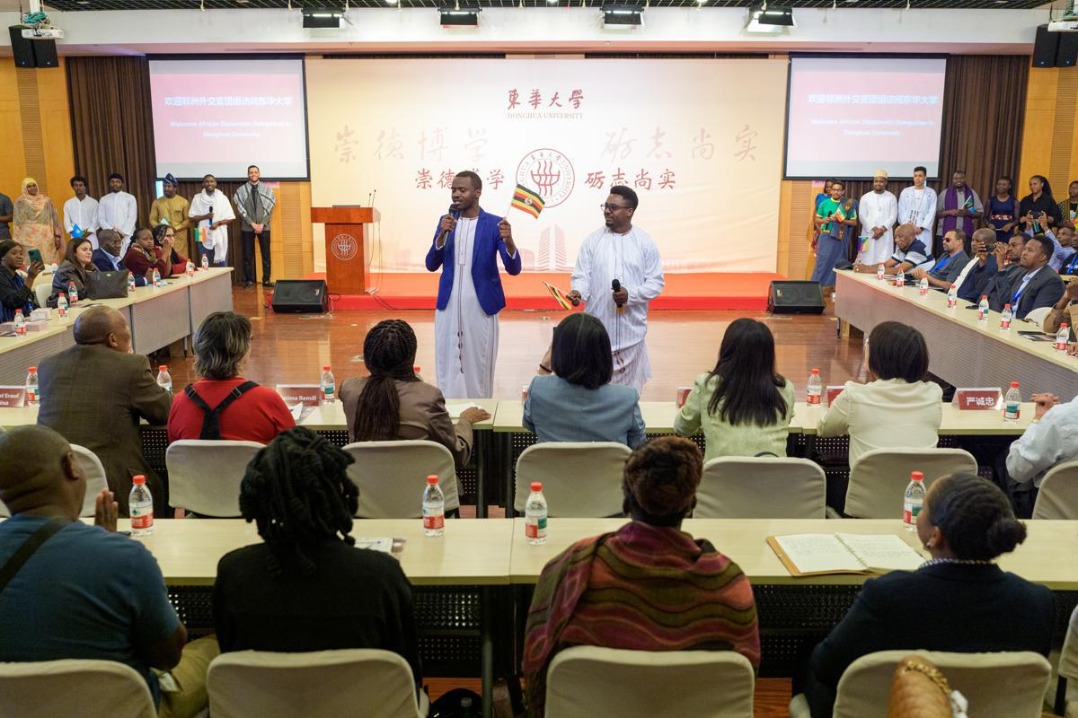From poverty to peace of mind
Music education has helped Hong Kong's underprivileged children to overcome negative emotions and transform themselves, with charitable organizations playing a key role in the process. Fang Xue reports from Hong Kong.

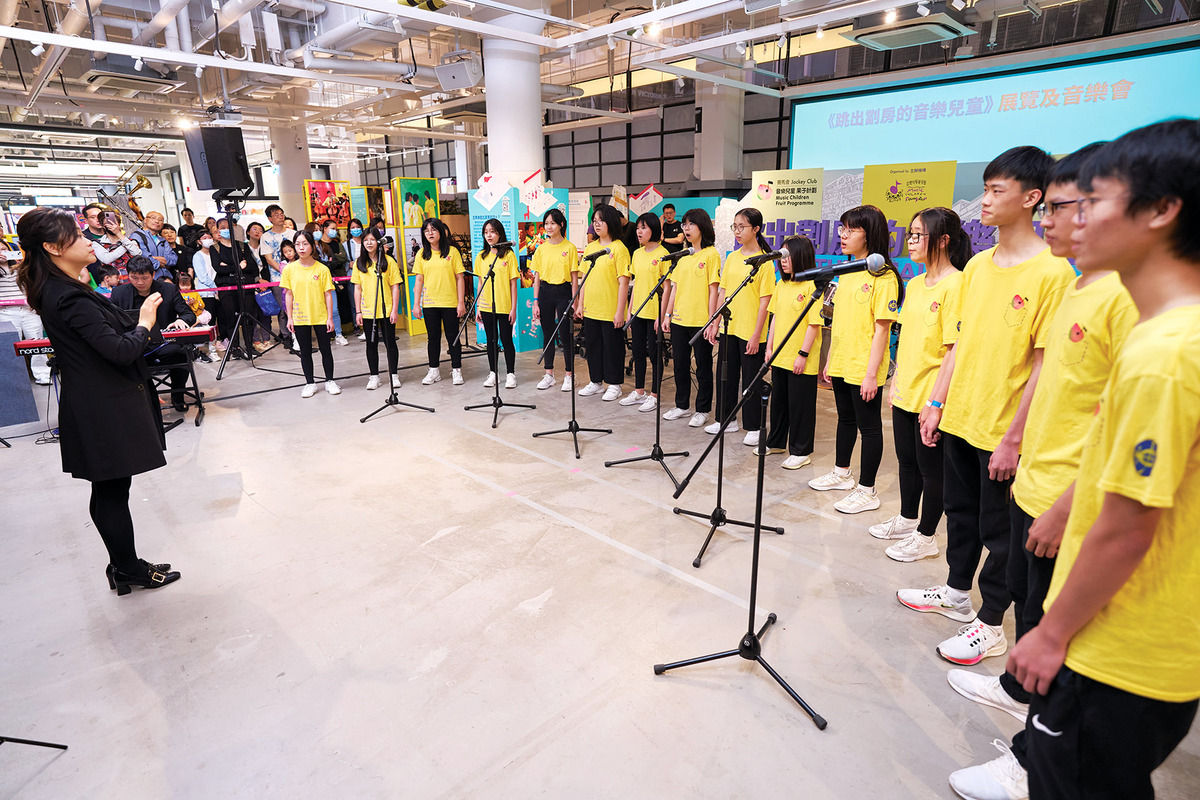
Twenty-year-old university student Ophelia Chan Cheuk-yiu used to have a deep aversion to going home, as it would rekindle thoughts about the poverty and pain of her childhood, but all that changed through music, which has given her a fresh start in life.
Chan's parents divorced when she was a child, leaving her mother alone to raise her and two elder sisters in a cramped room of less than 200 square feet (20 square meters). They had to survive on monthly government financial aid and donations of HK$10,000 ($1,280). Although life improved slightly after her sisters started working, the emotional scars remained.
As they struggled to make a living, expressions of care or even plain conversations within the family were rare. Chan grew introverted, withdrawn and depressed, and even had thoughts of harming herself at times. She had to endure the pain alone, unable to confide in her family.
Healing through music
In 2013, Chan's mother enrolled her in a program run by the Music Children Foundation (MCF), which offers free music education to underprivileged children. Although being dispassionate initially, Chan attended the foundation's weekly choir practice sessions in Sham Shui Po district and found her emotions being healed through music, as the choir became her sanctuary. She immersed herself in the melody, helping to erase strained relationships, academic pressure and familial indifference.
"My thoughts of giving up on life have now completely vanished," says Chan.
Whenever overwhelmed by emotions, she would seek solace in the choir as music can "purify and heal", she adds.
Chan's character has been transformed over 11 years, making her more extroverted, confident and willing to help others. "Music's like a light bulb that has illuminated my life," she says.
Staying with fellow members of the choir allows her to open up, communicate more with them, and learn how to express herself positively. When new members joined the choir, she would engage them in frank conversations.
Chan is among more than 6,300 children the MCF has helped over the years. Co-founders, sisters Annike Pong Chau-ngan and Monique Pong Sin-yu, launched the organization in 2013 to provide underprivileged children with an education in music, believing this could transform their lives.
Paulina Wong Wai-ying, former assistant professor and head of the musical arts division of the Cultural and Creative Arts Department at The Education University of Hong Kong (EdUHK), says learning music not only enables children to enhance their musical abilities, but also contributes to their holistic development.
She says she believes music can help children dispel negative emotions and foster mental resilience. It plays a vital role in cultivating cognitive skills, retaining memory concentration and developing self-discipline. Engaging with music can also ignite creativity, nurture imagination and encourage innovative thinking in children from impoverished families, she adds.
Wong says underprivileged children often come under huge financial and social strain, causing negative emotions, such as anxiety, frustration or anger. By participating in music activities, they can get rid of, or reduce, ill feelings, while music can divert them from resorting to extreme actions.
Zhang Lexuan, a research assistant professor in the Department of Cultural and Creative Arts at EdUHK, agrees that music education is critical for impoverished children.
By joining musical groups like choirs or orchestras, children can meet new friends and build up companionship. Such social links not only help them to expand their social network, but also make them feel the warmth and support of others, he says.
Zhang explains that as parents of children from low-income families might be too preoccupied with work to keep them company and offer guidance, the gap can be filled by the collective activities of music groups, which foster an important source of belonging and a sense of security.
Bridging inequality gaps
Despite the salient role music education plays in children's development, those from low-income backgrounds are often deprived of the opportunity.
According to Hong Kong's Census and Statistics Department, there were 955,500 children below 18 years of age in the special administrative region in 2023. Among them, 215,000, or 22.5 percent, were from impoverished families with a household income of less than HK$15,000 a month - about half of the city's median household earnings.
There were also 214,000 people living in subdivided flats, with 18.9 percent of them, or about 40,000, being children.
A survey by the Society for Community Organization (SoCO) in 2023 showed that 60 percent of children from low-income families had no access to summer activities due to financial constraints and limited school funding. The gap persists despite a vibrant arts scene, highlighting stark inequalities in opportunities.
The financial burden is obvious with piano lessons costing from HK$120 to HK$600 per session and concert tickets priced at between HK$380 and HK$1,880, making them largely inaccessible to underprivileged children. For the poorest 10 percent of households whose median monthly income is HK$1,600, four basic piano lessons would take up 30 percent of their income, while a budget concert would account for 20 percent, making cultural participation disproportionately costly for disadvantaged families.
The high cost of musical activities reinforces the perception that it is a privilege reserved for children of affluent families. This socioeconomic barrier often prevents many children from experiencing music, says Zhang.
The SAR government has also overlooked opportunities for underprivileged children to access music education.
There are 139 government-funded integrated children and youth services centers across Hong Kong, providing a range of social and community activities for children and adolescents aged from six to 24, and serving as a crucial support system for the growth of impoverished children, while acting as an essential channel for them to engage in artistic learning.
The SoCO report, however, revealed that nearly 70 percent of these facilities do not have activities specifically for underprivileged children. Although half of their classes for social activities cost less than HK$100 per lesson, 55 percent of them lack a fee reduction mechanism for disadvantaged children.
Recognizing that music education resources are often out of reach for many underprivileged children, local charitable organizations have stepped in to bridge the gap.
Annike Pong, formerly an actress, now teaches performing arts at Hong Kong Baptist University, while Monique Pong, a music educator, has spent years nurturing children's musical talents.
The sisters are devoted to caring for disadvantaged children, having grown up in poverty themselves. The Pong family lived in a cramped wooden hut of just eight square meters for years. It was not until Annike Pong became an actress that their family finances took a turn for the better.
Monique Pong recalls watching a documentary on a flight about the plight of Venezuela's children in disadvantaged communities, and how they broke free from poverty and crime through music education, creating a path of hope for the future.
Profoundly touched by the documentary, she wasted no time urging her sister to pitch a similar endeavor. They aimed to establish a nongovernmental organization in Hong Kong to provide underprivileged children with music education and change their destiny. It led to the birth of the MCF.
Following a musical performance by one of the MCF students, a friend of the Pong sisters from a charitable group made a handsome donation, allowing the foundation to continue its operations. The sisters have been sustaining the MCF's operations through donations and fundraising and, on occasions, by digging into their own pockets to keep it going.
The foundation's teaching team is more than 30-strong, with full- and part-time members all of whom are graduates of professional music colleges. "Despite getting lower pay compared to other institutions, many of them take up the job out of love," says Annike Pong.
The foundation enrolls nearly 100 underprivileged children each year, with 80 percent of them from families living in subdivided flats.
"Beyond its core programs, the MCF had organized 121 public performances as of 2023. A standout event was its April 2023 concertexhibition for children from subdivided units, featuring an immersive simulation of them practicing music in cramped, noisy conditions at home," says Annike Pong. "This artistic approach has bridged understanding across social divides and highlighted music education's vital role for underprivileged youth."
Music for all
SoCO has urged the SAR government to offer subsidies and fee cuts for community center programs, expand sponsorships for underprivileged children's recreational activities, and bolster support for after-school initiatives during summer and extended holidays.
"Enjoying the beauty of music is an equal right for everyone, and music education shouldn't be labeled as a privilege exclusive to the wealthy. Music should be for all," says Paulina Wong.
She has called for joint efforts across social sectors - families, schools and social organizations - to dismantle the barriers of inequality. For instance, schools should offer more music courses, she says, while at home, parents should be encouraged to foster creativity without significant expense by investing in affordable keyboards or percussion instruments, empowering children to experiment with music freely.
Zhang, currently training the next generation of music teachers, says schools should prioritize the study of music itself, rather than focusing on achieving success in music grade examinations. He also advocates for a thorough, systematic overhaul of arts education to enhance its quality.
Ophelia Chan now studies at EduHK and aims to be a music teacher.
For years, her music teachers had crafted a sanctuary for her through music. Her goal now is to do the same for other children trapped in the grip of poverty and hardship as she once was.
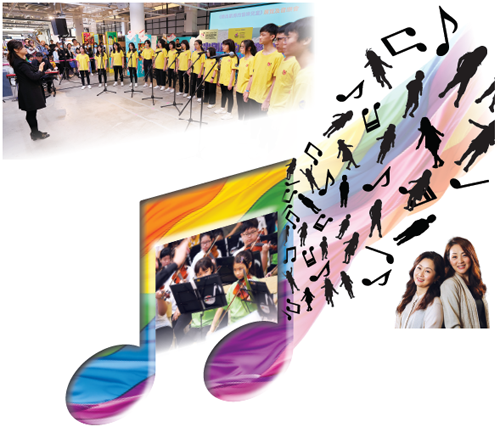
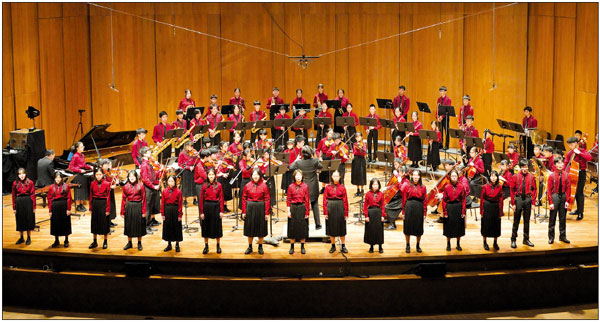
- Kite fliers honor Weifang's peace legacy
- Guangdong key industries to hunt for talent nationwide
- Nyingchi city's peach blossom season draws record tourists
- China's geospatial platform introduces 18 specialized datasets
- China makes big progress in helium exploration
- Guizhou's mega-bridge sets fire safety milestone

















